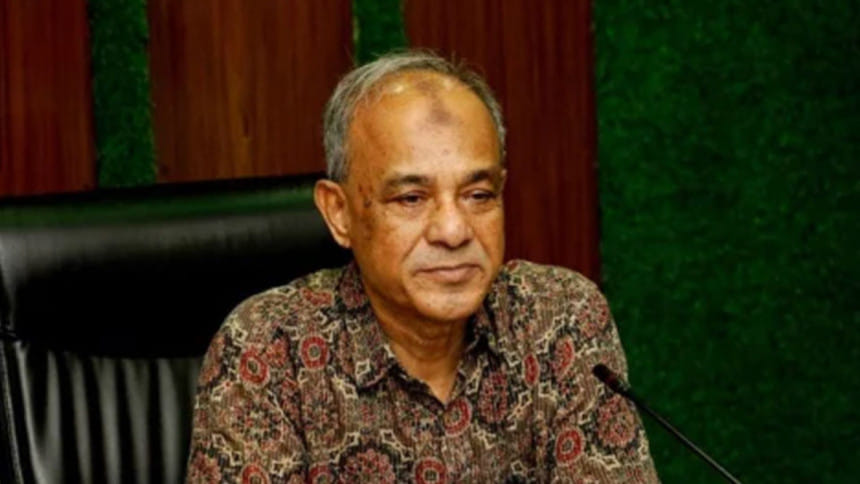Help us bring drugs, graft under control

The two things the interim government could not bring under control are drugs and corruption, Home Affairs Adviser Lt Gen (retd) Jahangir Alam Chowdhury said at a press briefing yesterday.
"I have never claimed that we brought narcotics under control… We need your [the public's] help to tackle both," he told reporters at the Secretariat, ahead of today's International Day Against Drug Abuse and Illicit Trafficking.
Calling for tougher action against affluent groups linked to the drug trade, Jahangir said, "Some upper-class individuals are heavily involved. If anyone is found complicit, they will face the law, regardless of their status."
He stressed that arresting small-time peddlers was not enough. "We must go after the godfathers behind these networks. If we fail to dismantle them, the supply chain will remain intact."
The adviser acknowledged that certain regions, including Cox's Bazar, have become "strategically important" for narcotics smuggling, and admitted to corruption in the process securing postings to these areas.
He also warned of a continued influx of Yaba from Myanmar, facilitated by armed groups dependent on the drug trade. "We have flagged this repeatedly. It is a transnational threat."
Jahangir noted the resurgence of cross-border Phensedyl smuggling as well. "It's not even being consumed in India anymore. It's being produced in their border areas solely to be smuggled into Bangladesh. It has become a cottage industry there."
Narcotics have infiltrated every level of society, from the affluent to the poor, he added. "When I visited a correctional facility, I saw children, students, professionals -- all affected."
The government is currently spending Tk 1,400 crore to establish seven new state-run rehabilitation centres in seven divisions, in addition to the existing four. "But I sincerely hope no one ever needs to go to those centres. We must act before people end up in rehab. Prevention must be our top priority."
Also addressing the briefing, Department of Narcotics Control (DNC) Director General Maruf Hasan described drug abuse as a deep-rooted social crisis fuelled by the complicity of individuals across all sectors, including DNC officials, media professionals, and other influential groups.
He also responded to questions about recent raids on shisha lounges and bars in upscale areas of Dhaka, where licensed establishments have allegedly been serving illegal alcohol with the approval of certain DNC officials.
"This is a social disease in Bangladesh. Yes, some of our officers are involved, as are people from the media and other sectors of society. This problem is sustained by collective complicity.
"We must act with integrity. Whenever we receive credible information, we take action. In Banani, we carried out two successive raids to shut down illegal operations, but faced resistance from powerful quarters residing there."
He noted that many bars were flouting the rule requiring alcohol to be sourced exclusively from the state-run Carew & Co warehouse.
"Illegal stocks are turning up everywhere. Shisha lounges are also mushrooming across Dhaka's elite neighbourhoods, attracting young people. These establishments remain under close surveillance."
Maruf acknowledged allegations that some DNC officials have accepted bribes or favours. "We have received such complaints. But this is not just a law enforcement issue; it is a societal problem. Everyone -- law enforcers, the media, the public -- must work together."

 For all latest news, follow The Daily Star's Google News channel.
For all latest news, follow The Daily Star's Google News channel. 



Comments